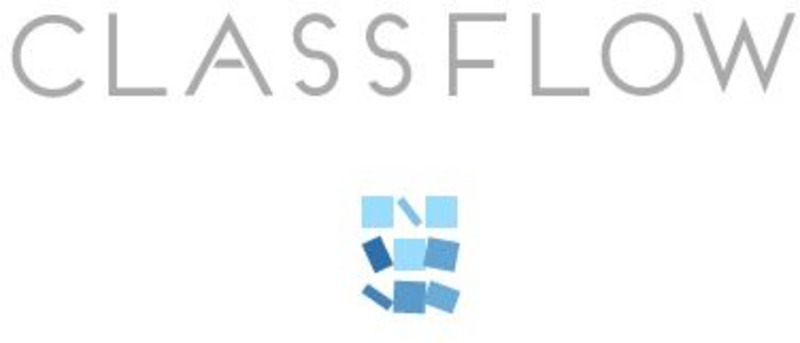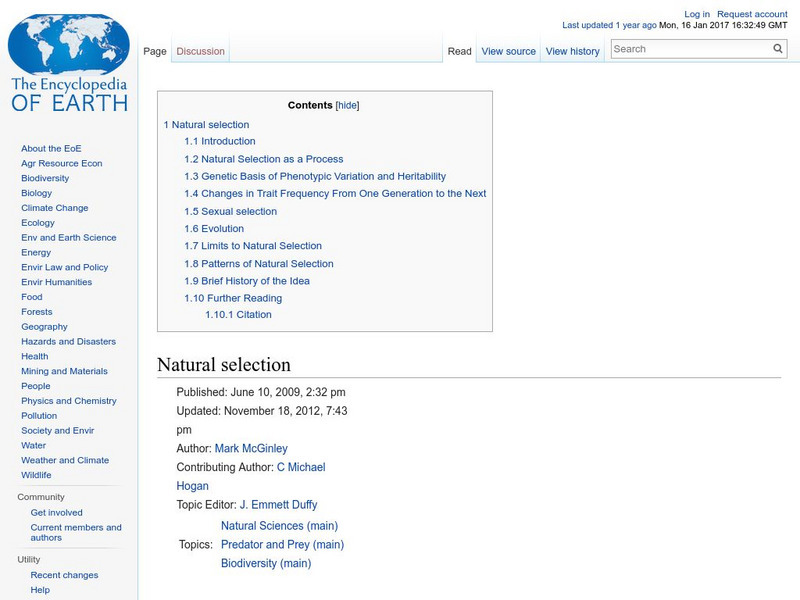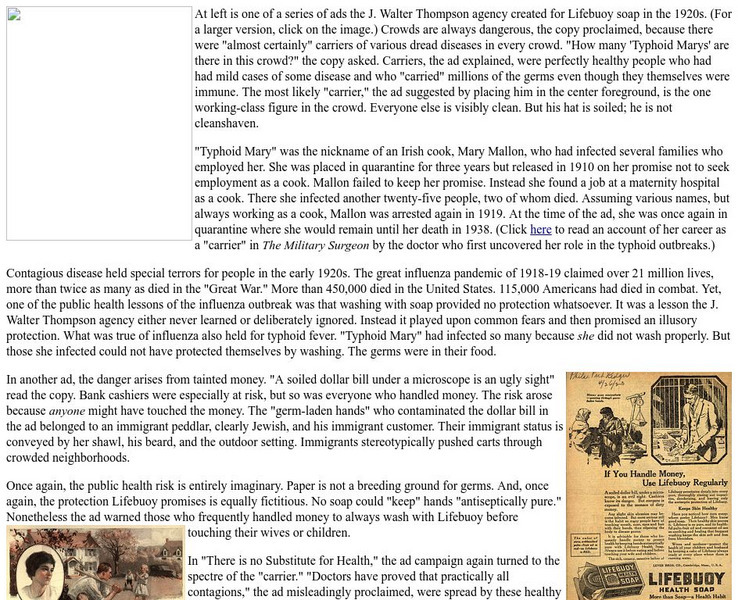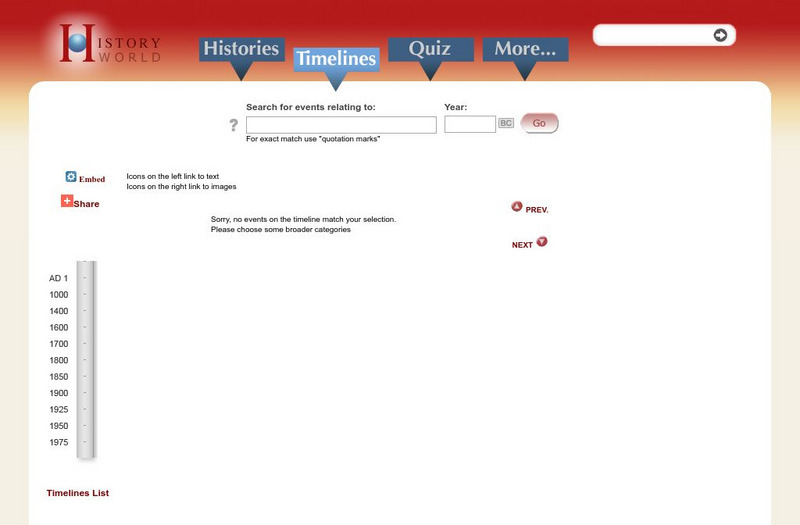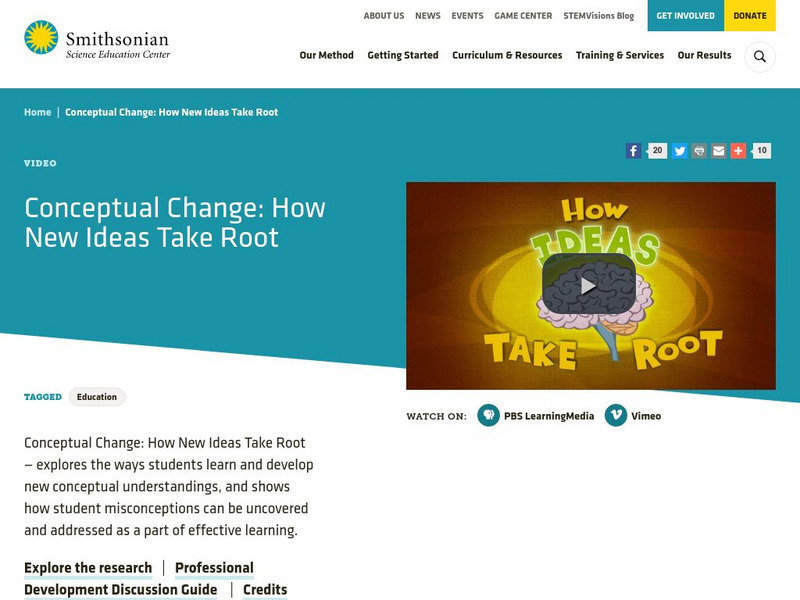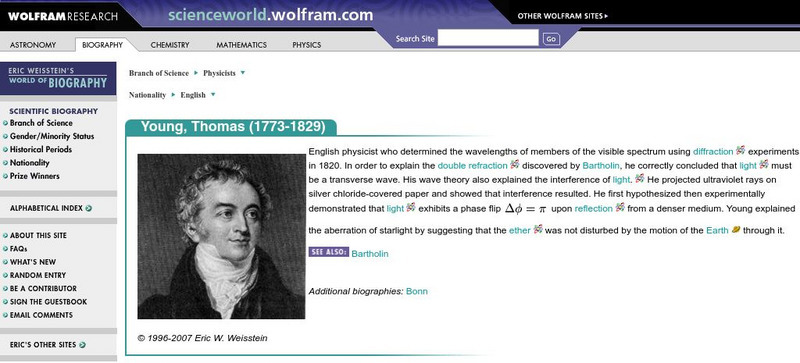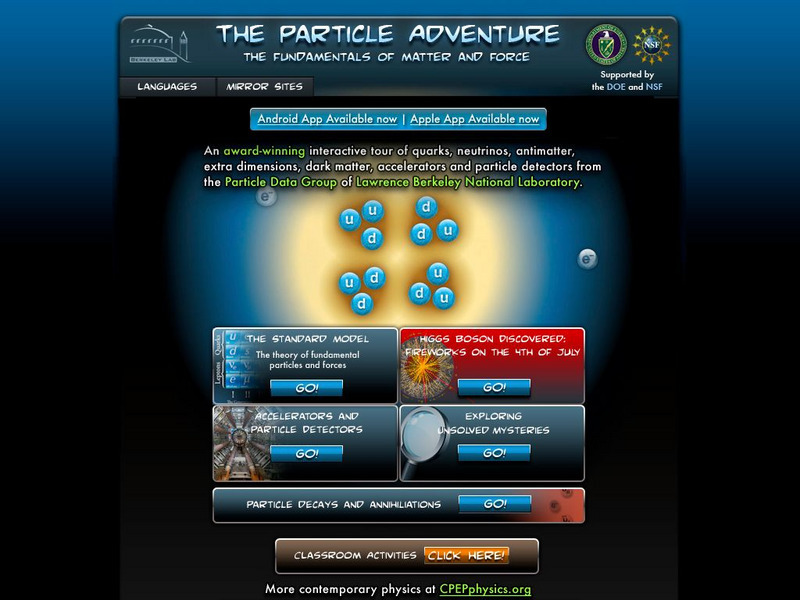ClassFlow
Class Flow: The Big Bang
[Free Registration/Login Required] Students often have a difficult time comprehending the timescale and distances of the universe. I have used this flipchart to start the discussion of the formation of our universe and how we know about...
Simon Fraser University
Chem1 Virtual Textbook: What Is Pseudoscience?
Pseudoscience studies various fields of science that make claims to be legitimate, but researchers and academics argue that pseudoscientific discoveries do not hold up to typical standards of testing and proof. Examples are the Lunar...
ClassFlow
Class Flow: What Happened to Pluto?
[Free Registration/Login Required] This flipchart was created to teach students about Pluto and the recent news of it NOT being a planet (officially). Lots of ways for students to vote on why as well as discussions about what other facts...
Wolfram Research
Wolfram Science World: Fresnel, Augustin
This site from ScienceWorld provides a short biographical sketch of Augustin Fresnel (1788-1827 CE) and describes his most notable scientific discoveries and contributions. Links are provided throughout for additional information.
Other
Hyper Jeff Network: History of Classic Electromagnetism
This site from the HyperJeff Network provides a timelined history of scientific thought and discoveries about classic electromagnetism. Includes links to the biographies of famous people and discoverers; the time period covered ranges...
Interactive Mathematics
Interactive Mathematics: Probability and Statistics
Mini lessons are provided for learning concepts in the world of probability and statistics. Topics include counting and probability, permutations, combinations, independent and dependent events, and distributions. Links to online...
Smithsonian Institution
Lemelson Center: Spark!lab: Polishing Pennies
Learn about acids and bases during this penny-polishing experiment. Students will hypothesize what substances will polish pennies and then test their hypothesis.
Encyclopedia of Earth
Encyclopedia of Earth: Natural Selection
Scientific article explaining what natural selection is, and how it manifests itself through genetics and from generation to generation. Natural selection is compared to genetic drift, both of which cause evolution to occur. The limits...
Other
Contagion: The Spread of Eugenics Throughout American Popular Culture in the 20s
A comprehensive look at the theory of eugenics, the pseudo-scientific idea that fed into the nativists' search for the "superior" American. This article explains how companies used this theory to sell their products.
Other
History World: Greek Science Timeline
A timeline of scientific discoveries and theories of the ancient Greeks. It covers the period from 585 BC to 150 AD, with three additional entries for related events in the 1900s. Each entry has links to additional content on the website...
Albright-Knox Art Gallery
Albright Knox Art Gallery: Painting an Impression
Impressionists used new methods of mixing colors based on contemporary scientific writings about optics. This lesson plan explores the theory of optical color mixing, painting the same subject under different conditions of light, and the...
PBS
Pbs Frontline: Last Battle of the Gulf War
A close-up look at the history and politics behind 'Gulf War Syndrome,' examining the key scientific and medical issues. Includes major theories, interviews with key players and an examination of the role of the media.
Smithsonian Institution
Smithsonian Science Education Center: Conceptual Change: How New Ideas Take Root
Develop a more nuanced understanding of how student ideas are formed both in and outside of the classroom. By understanding the student's misconceptions on scientific ideas, you can better structure your lesson to be more effective. This...
Vision Learning
Visionlearning: Physics: Light I: Particle or Wave
Instructional module focusing on light. Discussion includes historical development of particle versus wave theories and the scientific studies leading to the understanding of light waves today. Site also includes an interactive practice...
Wolfram Research
Wolfram Science World: Young, Thomas
This site from ScienceWorld provides a very short but factual biographical sketch of Thomas Young (1773-1829 CE) and describes his most notable scientific discoveries and contributions. Links are also provided throughout for additional...
Harvard University
Harvard Smithsonian: Everyday Classroom Tools
The focus of this series of lessons is to engage students in an exploration of the world around them. The emphasis is on inquiry as students learn about the earth, sun, light, shapes and more.
Lawrence Berkeley National Laboratory
Berkeley Lab: The Particle Adventure
Visit this site for an interactive tour of the atom and all aspects of particle physics. View the animations available with almost every description on this site. A great place for the fundamentals of particles and forces including a...
PBS
Pbs Learning Media: What Killed the Dinosaurs?
This Evolution Web feature explores how evidence can support a variety of hypotheses surrounding the mystery behind the extinction of the dinosaurs.
Hunkins Experiments
Hunkin's Experiments
This amazing website provides access to 200 exciting experiments from cartoonist, broadcaster, and engineer, Tim Hunkin. Each experiment is categorized and illustrated.
OpenStax
Open Stax: Physics: An Introduction
This interactive lesson introduces students to the branch of science known as physics.
National High Magnetic Field Laboratory
Magnet Academy: Claude Shannon
Claude Shannon was a mathematician and electrical engineer whose work underlies modern information theory and helped instigate the digital revolution. He was the first person to recognize how Boolean algebra could be used to great...
BBC
Bbc News: Lost Society Tore Itself Apart (2005)
Scientific research on Andean ice cores indicate that the Moche civilization survived climatic storms. New theory for why civilization ended is that clans turned on each other for scarce resources.
Other
Saudi Aramco World: Rediscovering Arabic Science
For most westerners, and indeed for many Arabs, the spectacular achievements of Arabic language science from the eighth through the 16th centuries come as a startling discovery, as if an unknown continent had suddenly appeared on the...


